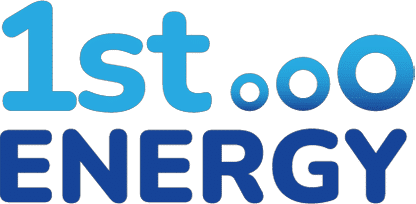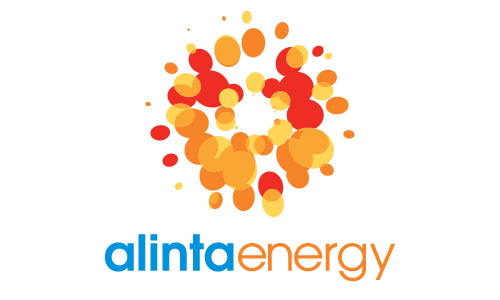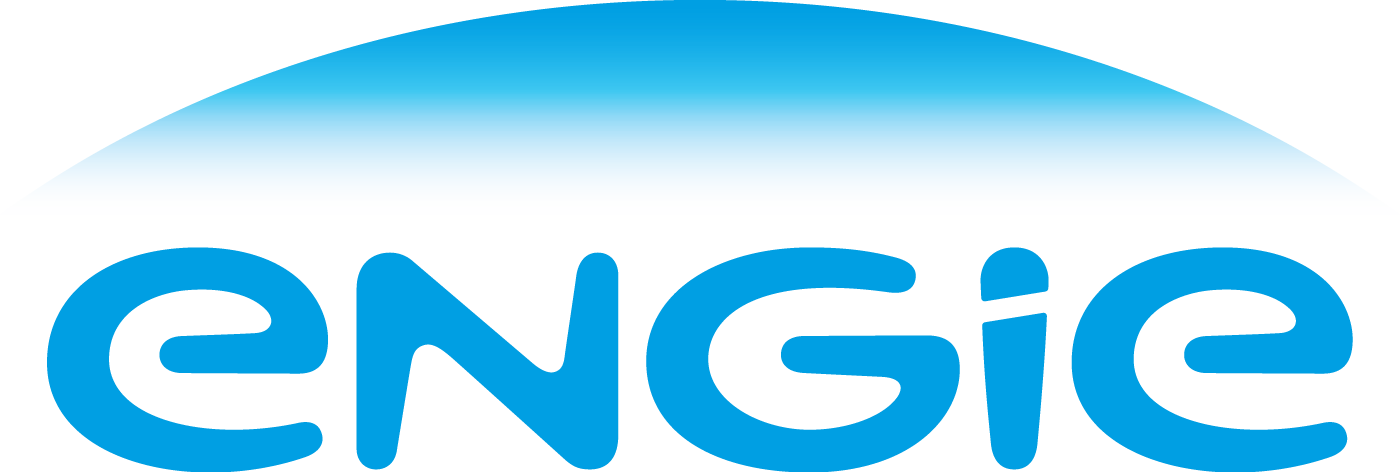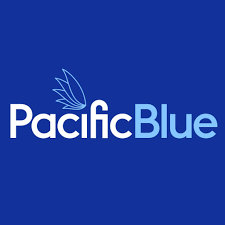













We’ve partnered with Econnex to bring you a range of energy plans to help you compare them.
Are you looking to compare energy plans in NSW? Choosing a new energy company can be overwhelming, as there are so many options available. With rising energy costs, it’s now more important than ever to compare energy plans to find the best deal possible.
Whether you're a residential customer or a business owner, our goal is to help you save on your electricity and gas bills, and find a plan that suits your budget and sustainability goals. Start comparing energy plans in NSW with Savvy today and make an informed decision that can potentially save you money.
Why compare business insurance policies through Savvy?
100% free service
There's no need for you to pay a cent to compare a variety of competitive policies side-by-side in one place.
Compare policies online
You can consider the inclusions, premiums, benefits and other key factors easily online, whether you're at home or on the go.
Trusted insurers
Considering offers from trusted providers can help give you peace of mind that you're comparing high-quality products.
What different types of energy plans are available in New South Wales?
In New South Wales, there are several different types of energy plans available for residents and businesses. These plans vary in terms of the energy source, pricing structure, and environmental impact. Here are some common types of energy plans in NSW:
Standard retail contracts
This is the default energy plan offered by energy retailers. It comes with set terms, conditions and prices. If you are on a default contract, you’re free to switch to a different plan at any point, and there won’t be any early exit fees. Such plans tend to have higher tariffs, although prices can only be raised every six months.
Market retail contracts
This type of plan offers greater flexibility and choice compared to a standard default contract. They are offered by individual retailers and include highly competitive tariffs, renewable energy options, discount offers and bundle packages. They have a fixed term (for example, one or two years) and exit fees will apply if you break a market contract before its expiry date.
Once you’ve decided between a standard or a market retail contract, there are also other possibilities available to choose:
- Time-of-use (TOU) plan: tOU plans have different pricing rates depending on the time of day. The rates vary between peak, off-peak, and shoulder periods. This plan is beneficial for customers who can shift their energy usage to off-peak times to save on costs.
- Fixed rate plan: with a fixed rate plan, customers pay a consistent rate per kilowatt-hour (kWh) for a specified period, regardless of fluctuations in the wholesale energy market. This plan offers price stability and protection against sudden price increases.
- Solar electricity plans: these are designed for households that have solar panels installed. They offer feed-in tariffs for surplus energy exported to the grid, helping to offset electricity costs.
- Green plans: green energy plans enable consumers to support renewable energy by purchasing a percentage of their electricity from certified renewable sources. Customers who choose green energy plans support the transition to cleaner energy and reduce their carbon footprint.
- Carbon-neutral plans: these plans not only support renewable energy but also offset the carbon emissions associated with energy consumption, promoting environmental sustainability.
The availability of these energy plans may vary among different energy retailers in New South Wales.
Savvy is here to help you make an informed decision when comparing electricity and gas plans. By carefully comparing energy plans through us, we can help you find the best possible options for your individual needs and easily switch providers.
What factors should I consider when choosing an energy plan in NSW?
When choosing an energy plan in New South Wales, it's important to consider the following factors:
- Comparison of costs to reference price: assess the cost of different plans in relation to the reference price, which reflects the average price for a typical household in your area. Such a comparison provides a clear indication of the most economical plan.
- Look at your energy usage patterns: analyse your own energy consumption pattern to identify a plan that aligns with your peak power usage times. This enables you to select a plan with favourable rates during those periods.
- Compare tariffs: compare the pricing structures of various tariffs offered by the energy plan. Pay special attention to time-of-use plans that offer distinct rates for peak, off-peak, and shoulder periods. This allows you to take advantage of lower rates during specific times of the day.
- Consider renewable energy options: if sustainability is a priority for you, explore plans that offer a higher proportion of renewable energy or include carbon-neutral offsets. This ensures that your energy consumption contributes to a greener future.
- Contract terms: look at the length of the contract and the associated terms and conditions of the energy plan. It is important to ensure that these align with your personal preferences and circumstances.
- Fees: take into account the basic supply charge and compare additional fees such as late payment fees, paper bills, credit card usage, and early termination of a market plan.
By carefully considering these factors, you can make a smart choice when picking an energy plan that fits your specific needs, budget, and concern for the environment.
Who are the current energy distributors in NSW?
Electricity
The main electricity distributors in NSW are:
- Endeavour Energy (formerly Integral Energy): southern/western metro Sydney, including the Blue Mountains and Illawarra
- Essential Energy: country and regional NSW (and parts of southern regional QLD)
- Ausgrid: inner, northern and eastern metropolitan Sydney and surrounding areas
Gas
Gas distribution in NSW is split between three distributors:
- Jemena Gas Networks NSW: distributing gas to Sydney, Newcastle, Central Coast, Wollongong, and some parts of country NSW
- Central Ranges: covering Tamworth and surrounding areas
- Wagga Wagga Gas Distribution Network: supplying Wagga Wagga and surrounding areas
Energy distributors are the companies responsible for delivering gas and electricity to our homes and businesses. They own and maintain the powerlines, poles, pipes, and meters that bring energy to our homes.
On the other hand, energy retailers buy power from generators and sell it to customers at a higher price. They pay the energy distributors to use their infrastructure. The cost for using powerlines and gas pipes is included in the billing as a ‘supply charge' by the retailers, who then compensate the distributors for using their infrastructure.
So therefore, if you encounter a power supply issue like an electrical outage or a gas leak, you should contact the energy distributor to resolve the problem, not the retailer from whom you purchase your energy.
Who are the energy retailers in NSW?
Electricity
The electricity retailers in NSW (Sydney) are:
- 1st Energy
- AGL
- Alinta Energy
- amber
- CovaU
- Diamond Energy
- dodo
- Energy Australia
- Energy Locals
- GloBird Energy
- kogan
- momentum energy
- Nectr
- Next Business Energy
- Origin
- OVO
- Powershop
- Radian Energy
- Reamped Energy
- Red Energy
- Simply Energy
- sumo
- tango
Gas
Gas providers in NSW include:
- AGL
- Alinta Energy
- CovaU
- dodo
- Energy Australia
- GloBird Energy
- Origin
- Powershop
- Red Energy
- Simply Energy
- sumo
* The above list of suppliers was compiled from the Australia Government’s EnergyMadeEasy website and is accurate as of July 2023.
What help is available with power bills from the NSW State Government?
The NSW State Government offers several programs and rebates to assist low-income households with their power bills. These include:
Low Income Household Rebate (LIHR)
This rebate provides eligible low-income households with a fixed amount of financial assistance to help cover their electricity costs. The rebate is provided as a credit on each energy bill issued quarterly, with a maximum annual total of $285 (as of June 2023). The exact amount is calculated based on the number of days from when you apply for the rebate. Each household is eligible for only one LIHR per financial year.
Eligibility for the LIHR
To be eligible for the LIHR, you need to fulfill the following criteria:
- You must be a permanent resident of NSW
- You must be the account holder with a NSW energy retailer
- You must possess one of the following cards:
- Pensioner Concession Card issued by the Department of Veterans' Affairs (DVA) or Services Australia
- Health Care Card issued by Services Australia
- DVA Gold Card marked with ‘War Widow' or ‘War Widower Pension,' or ‘Totally and Permanently Incapacitated' (TPI) or ‘Disability Pension' (EDA)
Family Energy Rebate
This rebate is designed to help eligible NSW families with dependent children to cover the costs of their energy bills. It comes in the form of a $180 credit on your energy bill.
Eligibility criteria for the Family Energy Rebate
To be eligible for this rebate, you must receive the Family Tax Benefit from the Department of Human Services, and had your entitlement to the FTB payments finalised by Centrelink. The applicant must be the account holder of the energy plan.
Energy Accounts Payment Assistance (EAPA) Scheme
The EAPA Scheme provides emergency financial assistance to low-income households in NSW who are experiencing a short-term financial crisis or hardship making them unable to pay their electricity bill. It is offered in the form of $50 EAPA vouchers which are sent electronically to your energy retailer. They are available for assistance with electricity bills and natural gas bills, but not LPG gas invoices. Examples of hardship which may make you eligible include:
- receiving a disconnection letter
- sudden loss of income/unemployment
- unexpected severe medical costs
- being affected by a natural disaster (flood, bushfire, or drought)
Eligibility for the EAPA Scheme
This assistance is available through selected community welfare organisations such as Anglicare, the Salvation Army, Wesley Mission and local land councils. To be eligible for assistance the following conditions must be met:
- you must have either an electricity or natural gas account for your home in NSW
- you're the account holder and the account and bill are in your name
- you have not paid your most recent bill
- the bill you need help with is for an account that is still open
- you're having a short-term financial crisis or emergency and finding it hard to pay your recent energy bill.
Life Support Rebate
If you or someone in your household requires the use of approved energy-intensive life support equipment at home, you may be eligible for a rebate to assist with the higher energy costs associated with running this equipment. The equipment must be essential for supporting life, such as home dialysis, ventilators and oxygen concentrators.
Eligibility for the Life Support Rebate
You can apply for the Life Support Energy Rebate if your application has been assessed by a registered medical practitioner who verifies the use of the approved life support equipment is required to maintain life.
The size of the rebate will depend on the type and energy rating of the machine you have, and how often it is required to be run. It’s possible to receive more than one rebate if you have multiple life support equipment in your home. It is necessary to re-apply for the rebate once every two years, or whenever your machinery specifications change.
*All information is correct as of June 2023, but subject to change.
Types of business insurance
How to switch energy providers through Savvy
-
Fill out a quick online form
First and foremost, you can start by filling out a quote with information about you and your energy profile, such as where you live, your overall usage and more.
-
Compare available offers
With the information in your form and a recent energy bill, you’ll be able to compare deals from a panel of leading energy providers based on a variety of important factors.
-
Make the switch
If you find an energy deal you’re happy with, you can go ahead and make the switch to a new plan or provider. This will be prepared and handled for you and can be completed in 24 to 48 hours.
Disclaimer:
Savvy is partnered with GoSwitch Holdings Pty Ltd to provide readers with a variety of energy plans to compare. Savvy earns a commission from GoSwitch each time a customer buys a energy plan via our website. We don’t arrange for products to be purchased from these brands directly, as all purchases are conducted via GoSwitch.
Savvy does not compare all energy plans or providers currently operating in the market. Any advice presented above or on other pages is general in nature and doesn’t consider your personal or business objectives, needs or finances. It’s always important to consider whether advice is suitable for you before purchasing an energy plan.
For any further information on the variety of energy plans compared by GoSwitch or how their business works, you can visit their website.












